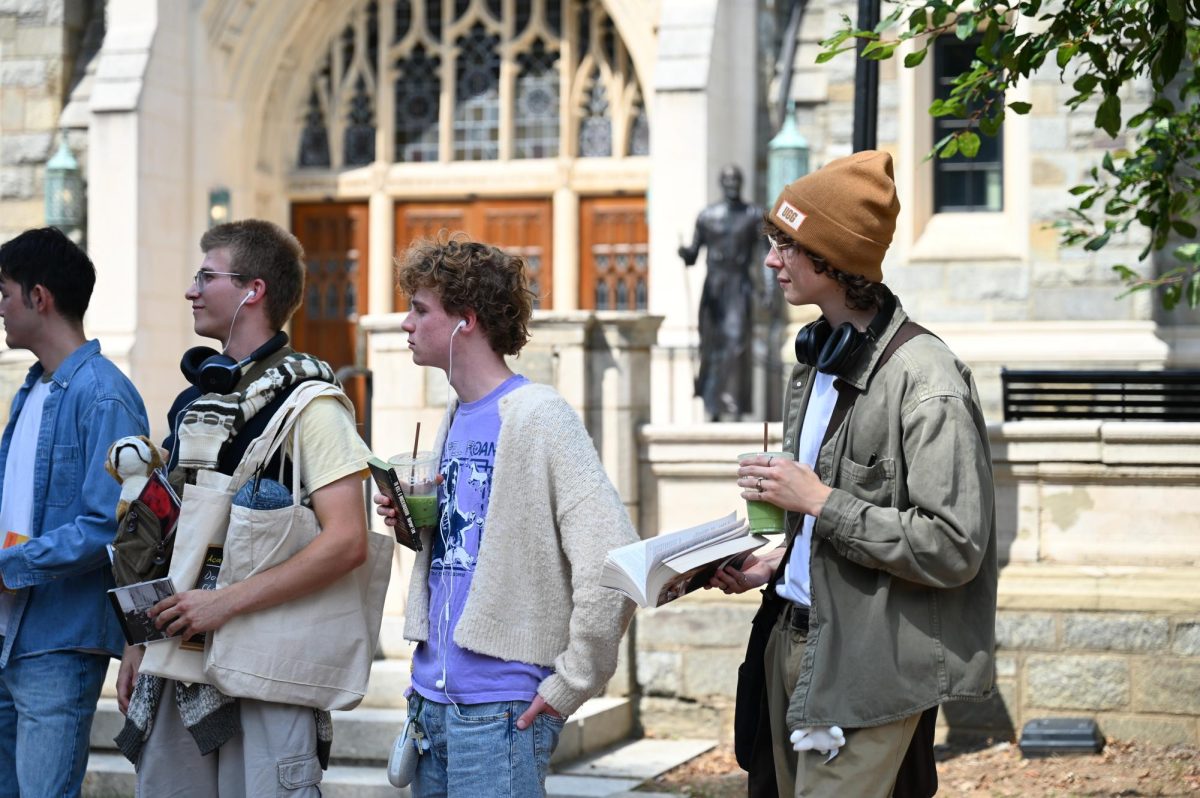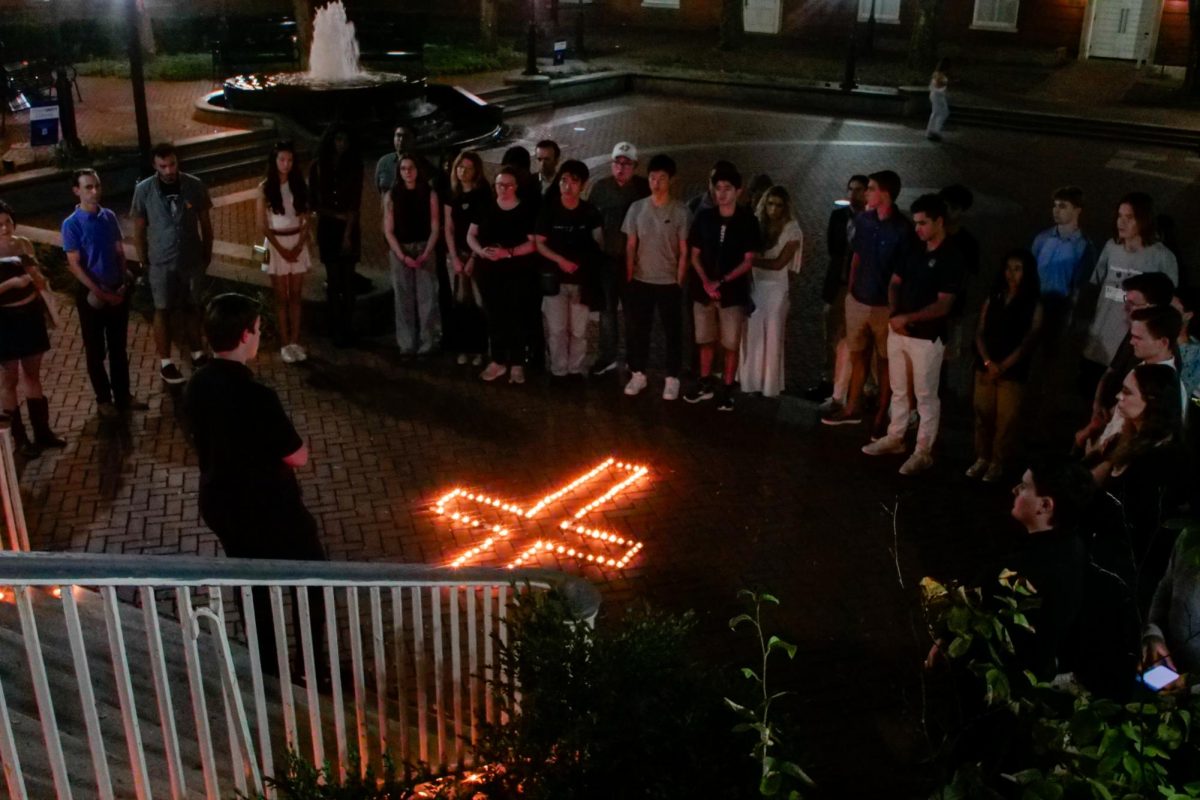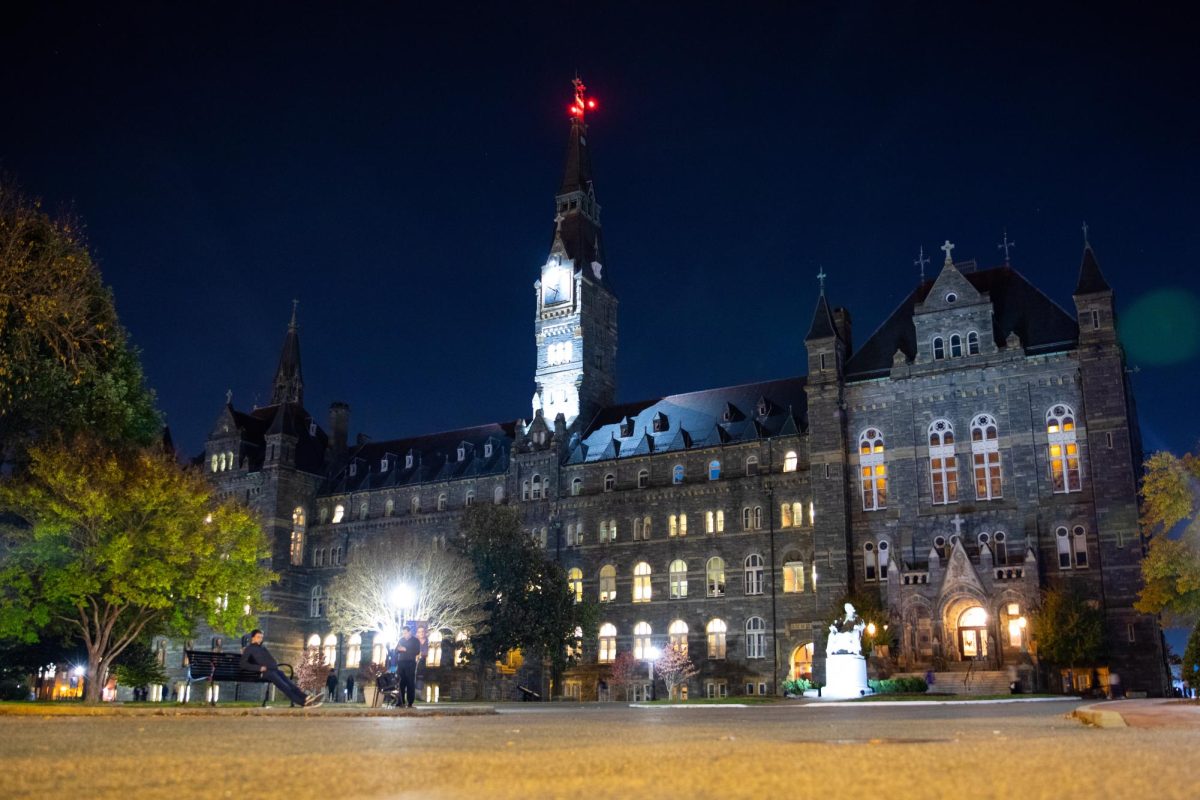On-campus crime at Georgetown University decreased from 2022 to 2023, according to the university’s annual security report, released Sept. 27.
The Jeanne Clery Disclosure of Campus Security Policy and Crime Statistics Act, a public safety law that applies to all colleges and universities receiving federal aid, requires Georgetown to publish a report that includes statistics of the crimes reported each year on Georgetown property, guidelines and protective measures students should take and a review of the crime reporting process. According to the report, documented incidents on the Hilltop campus decreased by about 20%, from 143 incidents in 2022 to 114 in 2023.
The number of reported burglaries, robberies and motor vehicle thefts on the Hilltop Campus decreased from 22 to 19 over the two-year period, while the number of cases involving rape, fondling or dating violence decreased from 29 to 11.
A university spokesperson said Georgetown University Police Department (GUPD), the department providing 24-hour security services to Georgetown’s campus, takes precautions for the safety of the Georgetown community.
“The safety of our community is our top priority,” a university spokesperson wrote to The Hoya. “When there is an increase in safety incidents anywhere on campus, the Georgetown University Police Department (GUPD) increases patrols out of an abundance of caution and takes appropriate steps to ensure the safety of the community. These steps can include efforts such as communicating with residents of the impacted buildings with important updates and safety reminders or coordinating with MPD to increase patrols.”
The statistics encompass all incidents in which the GUPD oversees on-campus event security and disseminates timely public safety warnings to students logged. However, these figures may not reflect all campus crimes, as some students opt not to report incidents to GUPD.
Trevor Buettgen (MSB ’27), whose air fryer was stolen from a McCarthy Hall common room, said that he did not think GUPD would be helpful in recovering his property and never filed a report.
“I never ended up filing a report with GUPD because apparently they don’t even have cameras on many of the floors,” Buettgen told The Hoya. “There’s nothing they really could have done about it. So I was like, it’s not worth the trouble. I’ll try to find it myself.”
Buettgen said the crime led him to become concerned about dorm security and the possibility of intruders.
“It seems like a camera is a pretty normal thing to have in a dormitory, especially right by the elevators at least, so they know who is coming in and out,” Buettgen said. “Safety-wise, it’s a little bit concerning knowing they don’t have that.”
The Clery Act also requires universities to publish monthly crime logs and send timely safety warnings to students when a crime has been committed in the university’s vicinity, including in the Georgetown and Burleith neighborhoods.
Savannah Baugh (CAS ’25), a student living in the Burleith neighborhood, said she feels GUPD procedures do not adequately address off-campus student needs, despite receiving the Clery Act safety warnings.
“I am definitely more wary of my surroundings now that I live off-campus,” Baugh wrote to The Hoya. “This year, I recognize that there are no longer multiple levels of security to enter each building and walking home in the dark is much more of a risk now.”
Annika Bjork (SFS ’25), one of Baugh’s housemates, said that they have remained concerned about theft in their neighborhood and have had to take greater responsibility for their residence safety as opposed to when living on campus.
“My roommates and I decided to install a security system because there was a robbery next door to our house,” Bjork wrote to The Hoya. “We all wanted to feel a bit safer when we are inside our home, especially at night.”
Baugh said she hopes Washington, D.C., integrates care for those who may be lacking housing and health care into its approach to public safety.
“Ensuring that D.C. residents have their basic needs taken care of would go a long way in reducing crime rates across the city, thus improving residents’ safety across the board,” Baugh wrote.




















